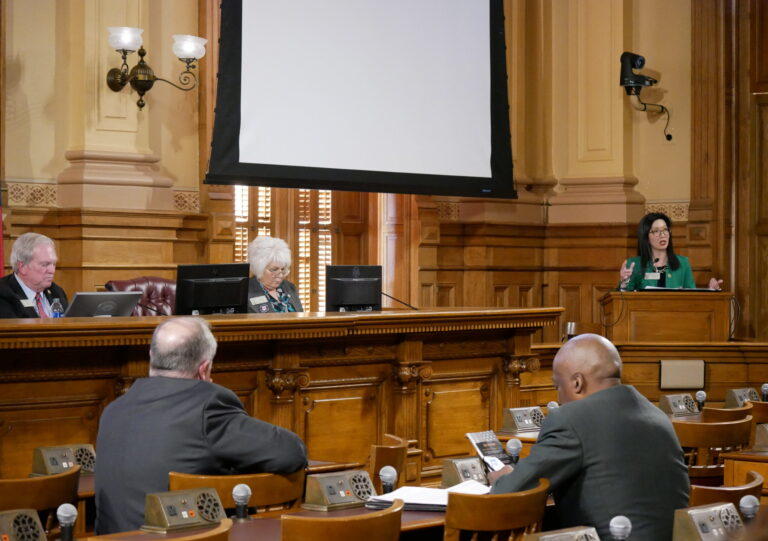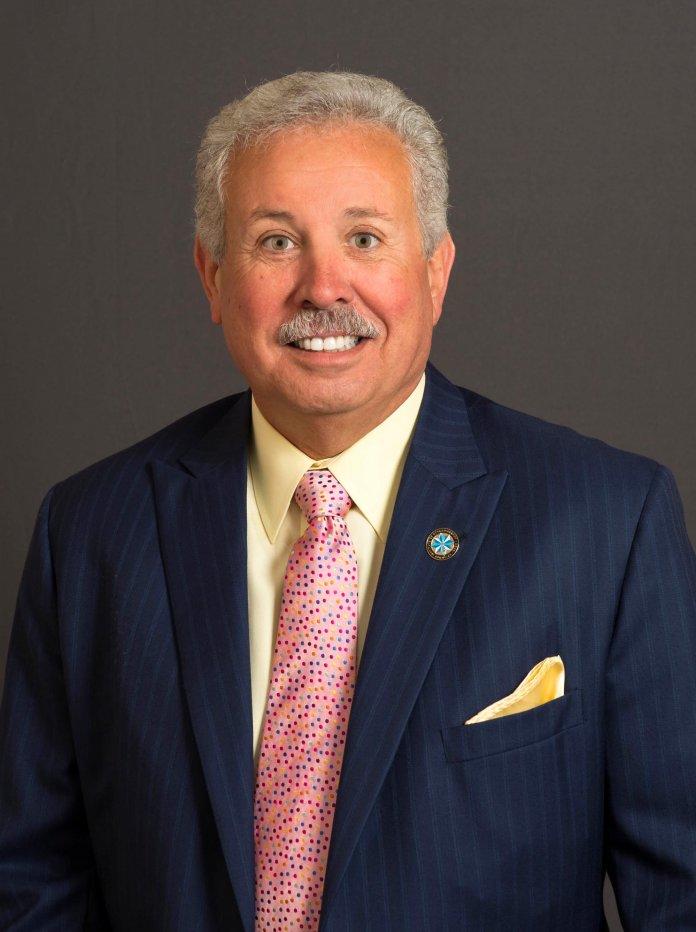
Caption
Rep. Michelle Au (far right) makes the case for taking a deep dive into the costs and effects of smoking in Georgia at a House Health Committee meeting in February 2023.
Credit: Jill Nolin / Georgia Recorder

Rep. Michelle Au (far right) makes the case for taking a deep dive into the costs and effects of smoking in Georgia at a House Health Committee meeting in February 2023.
A bipartisan group of lawmakers, including several who work in health care, has lined up behind a proposal to raise the tax rate on cigarettes and vaping products in the name of public health.
Georgia’s 37-cents-per-pack tax is one of the lowest rates in the country — second only to Missouri — but efforts to increase the rate in the past have gone nowhere fast.

State Rep. Ron Stephens
But House Speaker Jon Burns has appeared to leave the door open to a potential increase when asked by reporters this session, leaving proponents optimistic about their chances. It also helps that it’s not an election year.
State Rep. Ron Stephens, a Savannah Republican and pharmacist who is the lead sponsor, says he is trying to convince his colleagues to see the tax more as a “user fee.” Other sponsors include physicians and a dentist.
“If you’re going to smoke, you will get sick if you smoke long enough and hard enough,” Stephens said this week. “And so, it shouldn’t be up to the taxpayers of the state of Georgia to come in and fund your health care costs for either product, vaping or cigarettes.”
The increase would represent about a $90 million boost to state revenues, which supporters say should go toward health care services.
Stephens filed a pair of bills this month that would deal with cigarettes and vaping separately in case one of them gets hung up in the legislative process. One bill would increase the tax on cigarettes by 20 cents, bringing it up to 57 cents per pack.
The second bill would bump the tax on vaping products to 15%, up from 7%.
The cigarette tax proposal does not go as far as others would like — or as high as a new poll suggests the public might support.
About 63% of respondents to a recent survey said they would support moving to the national average, which is a significantly higher $1.91 per pack. That poll, which was released Friday, was done by the School of Public and International Affairs Survey Research Center at the University of Georgia and commissioned by the Georgia Budget and Policy Institute.
“We are really hoping that this polling data can help fuel the debate for a discussion around increasing that proposal up from 57 cents,” said Staci Fox, president and CEO of GBPI.
In 2020 when state revenues plummeted early in the pandemic, an influential Republican senator floated increasing the cigarette tax to $1.35 per pack.
Stephens said he is wary of hiking the rate up too high for fear of creating a black market for cigarettes. Under his proposal, Georgia would match South Carolina’s rate and continue to have one of the lowest rates in the country.
Rep. Michelle Au, a Johns Creek Democrat and an anesthesiologist, had initially filed a proposal that would bring the tax to the national average. But she has since joined her GOP colleagues in their push for a smaller increase.
The 57-cent rate is a more regional approach, though it ignores the states with the highest and lowest rates. Florida’s cigarette tax is $1.34 per pack.
Au said she had hoped for a steeper increase that she argued would serve as a greater deterrent, particularly with younger smokers who are more price sensitive. But still, she argued it’s likely to have some impact on behavior, noting it’s more than a 50% bump and the most significant increase in two decades.
“It’s always that balance, balancing the public health benefits with the political reality and trying to not upset the apple cart by going too far too fast,” Au said.
Au has also proposed a bicameral study committee that would dig into the costs and effects of a habit that affects every organ system in the body. She fielded questions at a meeting this week about what the state can – or should – really do to steer people away from smoking.
Au argues the state has not taken a hard look in two decades at the burden smoking puts on Georgia taxpayers. The former state senator turned state representative this year came to the meeting with packets of colorfully tabbed research, including one study that showed Georgia could save about $39 million if just 1% of its Medicaid population gave up smoking.
“No type of medical care is not affected by smoking,” she said. “All these things come with a cost, so when we talk about how much this is going to cost people, we can’t forget that we are already paying those costs as a society.”
For now, the tax proposals still have a long journey in the House, and a key deadline is March 6, which is when a bill needs to clear at least one chamber to have the clearest path to becoming law.
This story comes to GPB through a reporting partnership with Georgia Recorder.